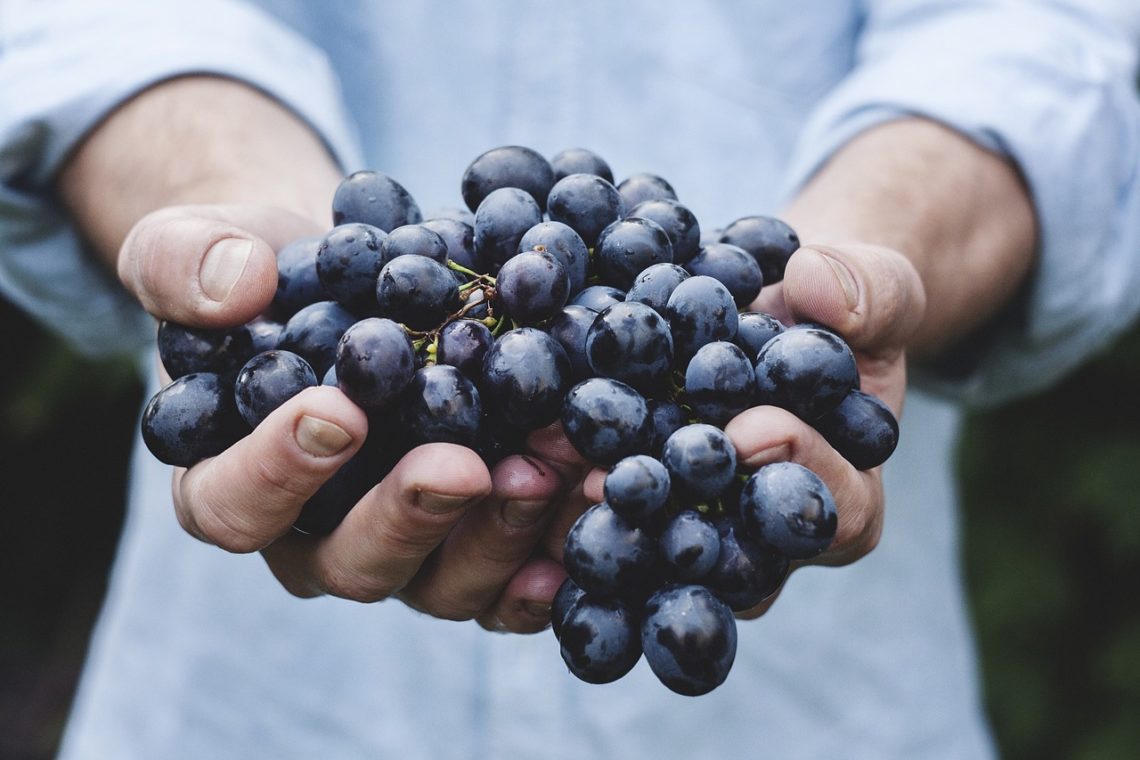by Madeline Sadler
Organic; “yielding, or involving the use of food produced with the use of feed or fertilizer of plant or animal origin without employment of chemically formulated fertilizers, growth stimulants, antibiotics, or pesticides” (Webster). The Organic Food Production Act was created in 1990 as a start to the National Organic Program. Since then, organic promises high standards when it comes to no chemical use, but they aren’t always as concerned with other things that come along with it. In the magazine Mother Earth Living (2018) it states “however, neither of the terms guarantee that the farmer is concerned with animal welfare, employee rights, soil health, or land management” (p. 9). Organic isn’t always better, because they don’t always focus on these other critical ethical issues.
It wasn’t until Regenerative Organic Certification came around that people weren’t just focusing on the chemicals but also the people involved and how the animals are being treated. Organic certification only deals with land, soil, and crop nutrient management as described in the National Organic Program. “A description of the management practices and physical barriers established to prevent commingling of organic and nonorganic products on a split operation and to prevent contact of organic production and handling operations and products with prohibited substances” (“eCFR — Code of Federal Regulations,” n.d.). Nowhere in this does it state anything about the conditions the farms have to be in or anything about animal welfare. Farms can monopolize under these standards and take jobs away from more local operations that consumers don’t have the information on. Regenerative Organic Certification not only deals with already having to be organically certified, but they are taking other precautions as well. “USDA Organic or international equivalent serves as the basis for Regenerative Organic Certification, with additional requirements included for Soil Health and Land Management, Animal Welfare, and Farmer and Worker Fairness” (Rodale Institute, 2018).
Food is essential to our lives and wellbeing. So, it would make sense to want fresh produce or organic meat free of antibiotics. Everyone can agree they don’t want to consume chemicals from the food they eat, but the organic food scene in the United States is not as local as you would think. “As one small family farmer in Connecticut told me recently, ‘Almost all the organic food in this country comes out of California. And five or six big California farms dominate the whole industry’” (Maloney, 2006). An example concerning organic food and where it comes from was very inciteful on this issue:
Let’s say you live in New York City and want to buy a pound of tomatoes in season. Say you can choose between conventionally grown New Jersey tomatoes or organic ones grown in Chile. Setting aside freshness, price, and energy conservation, should a New Yorker just instinctively choose organic, even if the produce comes from Chile? (Maloney, 2006)
In this instance, most people would most likely pick the fresher more local option, but that’s not always the case. While a large portion of our fruit in the United States is imported into the country, one can assume that they will choose the organic option if they are committed to wanting to stray from residual pesticides on their produce. On the contrary, organic produce in other countries doesn’t mean great conditions. A company called Fyffes who is our number one supplier of honeydew melons in the United States has been caught mistreating their workers.
Our investigations, which have included multiple fact-finding trips to the region, have documented a range of serious human and labor rights abuses by Fyffes local management, including failure to provide a living wage, exposure of workers to hazardous agrochemicals, harassment and illegal dismissal of union members, blocking collective bargaining processes, and failure to pay into the social security system among many others. (USLEAP, n.d)
This just goes to show that just because something is organic doesn’t mean it’s the best available option on the market. This example is just one of many different cases out there on the internet that does not take a lot of digging to find. People need to become more aware of where their food is coming from rather than just assuming it’s better because it is labeled as such.
Some people might argue that organic food is better for you. According to new research being done, it is not. According to a study conducted in 2012 at Stanford University “researchers looked at their broad array of studies, which included lots of different crops in different situations, they found no such broad pattern. When it comes to their nutritional quality, vegetables vary enormously, and that’s true whether they are organic or conventional” (Aubrey & Charles, 2012). After looking at thousands of studies, the researchers still couldn’t find definitive proof that organic food is any better for you. “In addition, the researchers found that the pesticide levels of all foods generally fell within the allowable safety limits” (“Organic Food is,” 2012). This means that just because something is organic doesn’t mean it still doesn’t have pesticides on them. Just because it says organic is better on the packaging, consumers should not always believe what they read.
So the real question is, why do people still prefer organic products over conventional ones? When it comes down to it, “Organic foods can cost as much as a third more than conventional alternatives” (“Organic Food is,” 2012). Not only are organic foods pricier than conventional products but, “Organics is a $29 billion industry and still growing” (Aubrey & Charles, 2012). Somewhere in this facade that organic is always better, organic companies are gaining thousands, if not millions, of dollars in revenue all because people were conditioned to believe that organic is better. When it comes down to it, not only is organic pricier than the other option but, it is not any more nutrient dense than its counterpart nor does it 100% guarantee that there aren’t pesticides on the item you are buying. Organic companies misuse their workers and subject them to some awful conditions in some cases. The question is now passed on to the consumer, are you willing to sacrifice welfare for workers, potential pesticides, environmental pollution, and the same nutrient density as it’s counterpart all because something is organic?
References
A New Organic Standard. (2018). Mother Earth Living, (6), 9.
Aubrey, A., & Charles, D. (2012). Why organic food may not be healthier for you. Retrieved from https://www.npr.org/sections/thesalt/2012/09/04/160395259/why-organic-food-may-not-be-healthier-for-you
eCFR — Code of federal regulations. Retrieved from https://www.ecfr.gov/cgi-bin/retrieveECFR?gp=&SID=b2ff9dc1304c73afedc647eca29a538b&mc=true&n=pt7.3.205&r=PART&ty=HTML#se7.3.205_1200
Maloney, F. (2006). The dark secret about whole foods. Retrieved from https://slate.com/culture/2006/03/the-dark-secrets-of-whole-foods.html
Organic food is not healthier, say Stanford researchers; When it comes to nutrition, organic meats, produce and dairy are no better. (2012). Retrieved from http://www.nydailynews.com/life-style/health/organic-food-not-healthier-stanford-researchers-nutrition-organic-meats-produce-dairy-no-better-article-1.1151470
Rodale Institute. (2018). Framework of regenerative organic certification [Ebook] (p. 2). Retrieved from https://rodaleinstitute.org/assets/ROC-Framework-Pilot-Ready-March-2018.pdf
USLEAP: Justice in the Americas | International Labor Rights Forum. Retrieved from https://laborrights.org/programs/usleap






One Comment
Kamela Wright
I really enjoyed seeing an unpopular opinion expressed. I had no idea that organic food had such terrible properties. Incorporating nutrition, workers and price into this essay really strengthened the main thesis. The fact that science can’t back up the popular claim that organic food is healthier also really takes down the opposition. This also puts less pressure on those in a lower economic status to buy organic when they can’t afford because it is not healthier and may actually be worse for everybody involved in its production.